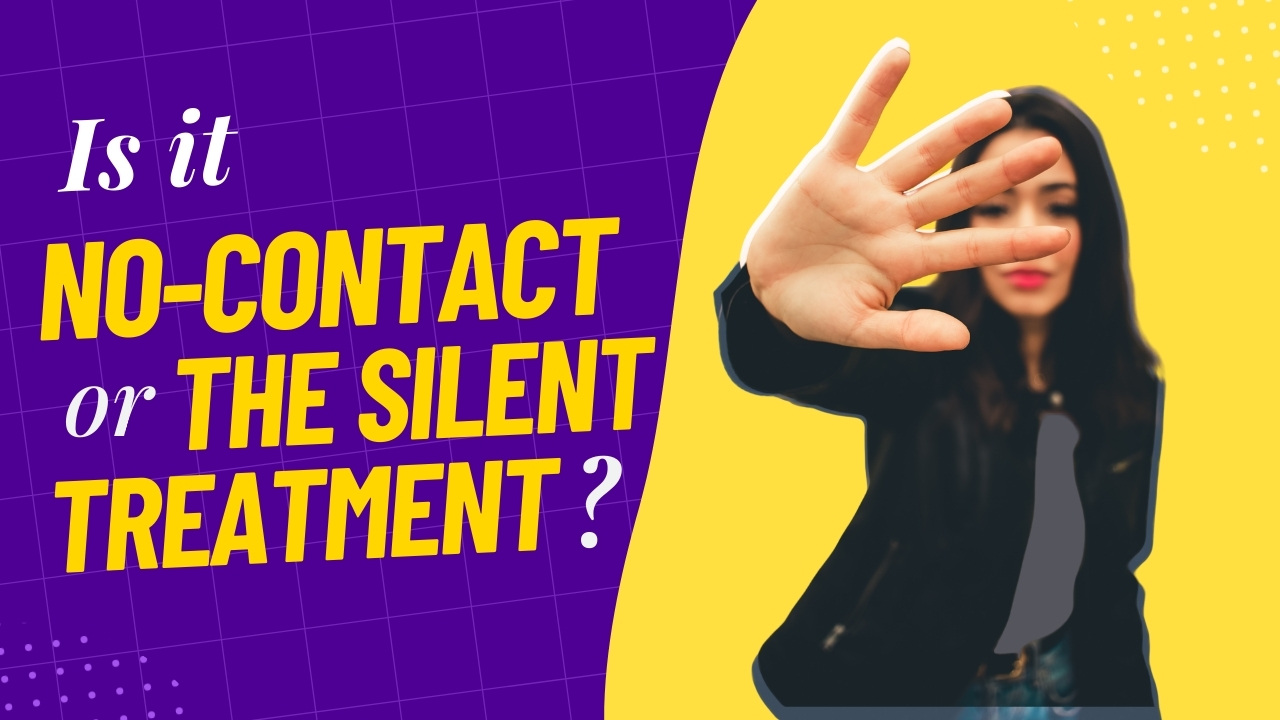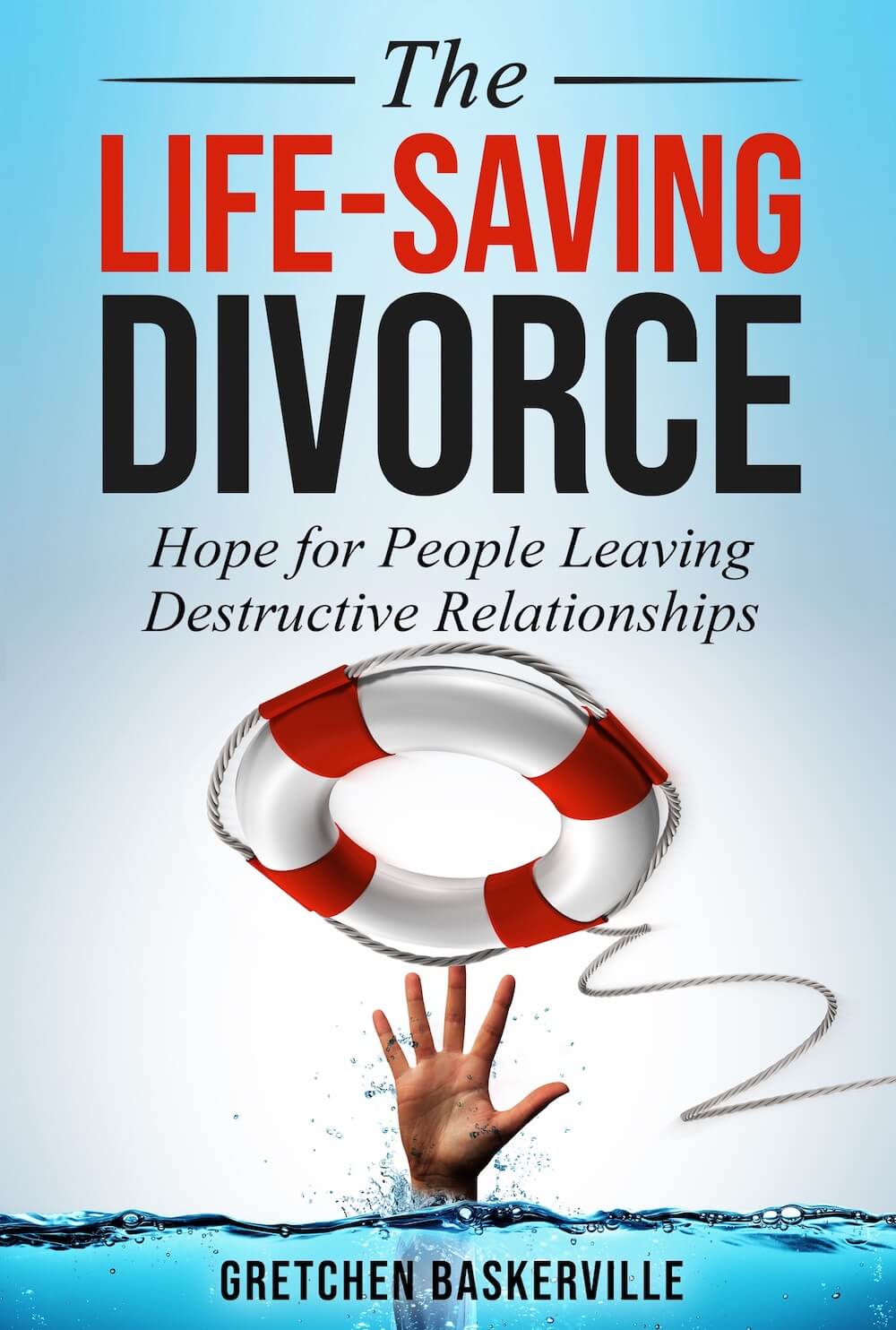What’s the Difference Between No Contact and The Silent Treatment?
People often wonder: What does it mean that my spouse is refusing to talk? Is my husband or wife using “gray rock” tactics or ignoring me because they want to punish me? “No contact” is a boundary-setting tool for self-care, while “the silent treatment” is often used as a means of exerting control or inflicting emotional distress on others. The difference between going “no contact” and giving someone “the silent treatment” lies primarily in the purpose and goal of the action.
Definition of “No Contact” and “The Silent Treatment”
-
: This approach is typically used as a self-protective measure, often in response to harmful or toxic relationships.
-
: The aim is to create distance and cease all forms of interaction to promote personal healing and safety.
-
: No contact is typically implemented for self-protection and to maintain emotional well-being, especially in situations involving abuse or toxic relationships. It involves severing all forms of communication to prevent further harm and allow healing.
-
: It is often a deliberate choice made by the individual to protect themselves from abusive or toxic interactions. No contact is not intended to manipulate or control others but rather to establish a boundary for personal safety. It accepts the reality that this person is harmful to them.
-
: This tactic is generally employed as a form of emotional manipulation within relationships.
-
: The intent is usually to influence or control the other person’s behavior through the deliberate withholding of communication or affection.
-
: The silent treatment is often used as a means of emotional manipulation or control. It is intended to punish or influence the other person’s behavior by withholding communication or affection.
-
: This behavior is typically used within the context of a relationship where one person seeks to exert power or control over the other. It can be emotionally abusive and is often used to make the recipient feel guilty, anxious, or unworthy.
The fundamental difference lies in the motivation behind each action.
“I always think of it this way. When someone gives a person the silent treatment, they actually WANT that person to reach out, beg for a conversation, etc. Someone going no-contact does not. They genuinely want to be left alone.
Silent Treatment: “So you miss me now, right? I bet you are sitting home crying over me!”
No-Contact: “Go.Away. My life is 100% better when I don’t talk to you.”
—Caroline McKuen
While both involve a lack of communication, the silent treatment is generally used to manipulate or punish, whereas no contact is used for self-protection and to establish boundaries.
Self-Test: Am I Going No Contact or Using The Silent Treatment?
Here’s a 10-question questionnaire to help you determine if your actions are motivated by self-protection or an attempt to control the other person:
-
When I distance myself from someone, my primary goal is to:
a) Get away from a hurtful person or painful situation. (I’m hoping they leave me alone.)
b) Make the other person miss me, apologize to me, or change their behavior. (I’m hoping they reach out to me, beg forgiveness, or try to connect, which I may use against them.) -
I find myself constantly thinking about:
a) How to improve my own peace of mind
b) How to get the other person to act differently -
When I don’t respond to messages or calls, it’s because:
a) I need time to process my emotions and thoughts
b) I want to see how the other person reacts to my silence -
My decision to limit contact is primarily motivated by:
a) A desire to make my own decisions, not to be pressured by someone else
b) An attempt to change the other person’s feelings or actions -
When I think about the future, I focus on:
a) My personal growth and healing
b) How the other person might change their behavior towards me -
The main outcome I hope to achieve through my actions is:
a) To protect myself from someone who ignores my well-being
b) A change in the other person’s attitude or behavior -
When I reflect on my actions, I feel:
a) I did what I could to protect my well-being
b) Anxiety about how the other person is responding -
My decision-making process is primarily influenced by:
a) Staying away from someone who tries to manage my thoughts and behavior
b) How I can influence the other person’s actions -
When I imagine reconnecting with the person, I think about:
a) Whether I feel emotionally ready and secure
b) How they might have changed or what they might say -
The emotions I experience most often in this situation are:
a) A sense of personal growth that I prioritized my safety, or my children’s safety
b) Frustration, anticipation, or a need for control
Scoring:
-
Mostly (a) responses suggest a focus on self-protection and personal growth.
-
Mostly (b) responses indicate a tendency towards attempting to control the other person’s behavior.
This questionnaire is designed to help individuals reflect on their motivations and behaviors. It’s important to note that self-awareness is key in recognizing one’s true intentions, and honest self-reflection is crucial when answering these questions



 :
:
 Buy PDF
Buy PDF